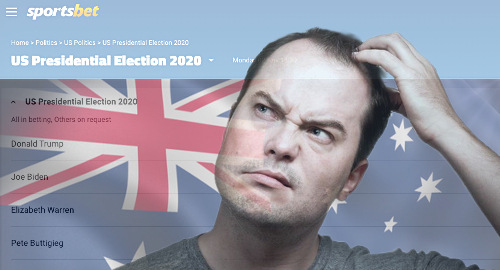 Australia’s online gamblers will soon be able to prohibit their access to locally licensed betting sites on a national basis as the government implements new consumer protections.
Australia’s online gamblers will soon be able to prohibit their access to locally licensed betting sites on a national basis as the government implements new consumer protections.
This weekend, Australia’s federal government released the baseline study on its new National Consumer Protection Framework for online wagering. The Framework, which was ratified by all Aussie state governments one year ago, featured 10 minimum standards for Aussie online betting operators that are now being implemented.
One of the study’s chief recommendations was for the federal government to “prioritize the development and implementation of the national self-exclusion register.” On Wednesday, Communications Minister Paul Fletcher complied, tabling draft laws to parliament’s lower house that will establish the voluntary online National Self-Exclusion Register.
Once implemented, the register would enable gamblers to ban themselves from all Aussie-licensed betting sites and apps across state boundaries “in one go.” Bettors would have the option of banning themselves for a period of three months or on a permanent basis.
Once a customer has registered, betting operators would be required to return all funds in that customer’s account (pending settlement of any existing wagers) and then close the account. Operators would also be prohibited from directly advertising and promoting to anyone whose name appeared on the register.
The Australian Communications and Media Authority (ACMA) will be responsible for implementing the register but all costs for setting up and maintaining the service will be paid by betting operators.
Interestingly, while the majority of operators who participated in the baseline study expressed support for the register, many of them cast doubt on the government’s ability to get its ducks in a row by the stated launch target of May 26, 2020.
BETTORS SAY DEPOSIT LIMITS GOOD, MARKETING BAD
The baseline study (viewable in full here), which was produced by the Australian Institute of Family Studies, offered the somewhat dubious estimate that over half (52%) of the 5,076 survey participants were either at risk of or already experiencing gambling-related harm.
However, the study also found that “many participants did not view themselves as experiencing gambling-related harm.” The authors noted that this disconnect “could affect uptake of consumer protection features.”
Of the consumer protection measures currently available on Aussie betting sites, deposit limits were the most used (13.2%), followed by unsubscribing from direct marketing (11%) and spending limits (10.1%).
Among the changes participants would like to see betting operators adopt were better and more consistent messaging regarding reducing gambling-related harm, while a desire for a reduction in operators’ overall marketing efforts – particularly on television – was another common refrain.
WOMEN LOVE TV BETTING, HIGH-ROLLERS LOVE POLITICS
Among the survey’s other findings, horseracing was by the far the most popular wagering activity at 75% participation, well ahead of sports (52.9%) and greyhound racing (31.7%). At the bottom of the scale, eSports netted only 2.6% participation, although wagering on current affairs wasn’t far back at 2.7%.
While women made up only 23% of participants, these women punched above their weight in only one wagering activity: 32.7% of women said they bet on televisions events/shows, a far bigger percentage than the next-highest female category, horseracing (23.6%).
Also, wagering on TV events/shows ranked fourth in terms of average expenditure at AU$71.50, ahead of eSports, harness racing, greyhound racing and fantasy sports. The average expenditure crown went to current affairs at $140.10, significantly higher than runner-up horseracing ($96.20) and third-place sports ($84.10).
A plurality of participants (45.1%) wagered on only one activity, while a more diversified 16.9% wagered on four or more activities. Of those who only bet on one activity, 30.7% wagered on the ponies.
Nearly half (46%) of participants had only one online betting account, while nearly one-fifth had over three accounts. Around 13% of participants admitted that they’d opened an account with an unauthorized internationally licensed online gambling operator, while another 2.7% preferred not to answer that question, so just add those guilty bastards to the ‘yes’ column.